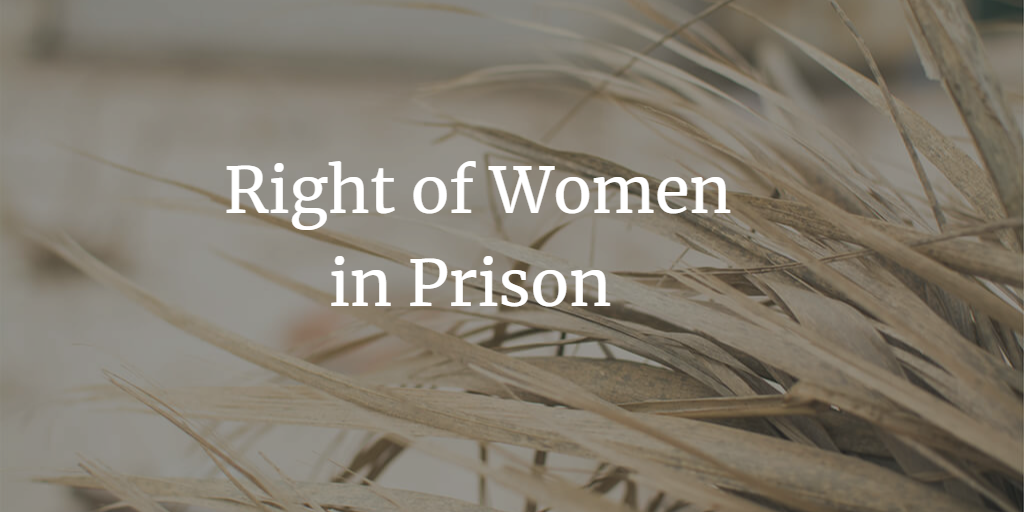Right of Women in Prison in India

Table of Contents
Introduction
Legal Provisions Protecting Women in Prison
Challenges Faced by Female Prisoners
Reforms and Recommendations
Conclusion
Introduction
The rights of women in prison in India have long been a topic of concern. Female prisoners face unique challenges and vulnerabilities, which require special attention from the legal system and prison administration. This article will explore the legal provisions that protect women in Indian prisons, the challenges they face, and the reforms and recommendations aimed at improving their conditions.
Legal Provisions Protecting Women in Prison
Several legal provisions have been enacted to protect the rights of women in prison in India. Some key provisions include:
Constitution of India: Article 14 guarantees equality before the law, and Article 21 ensures the right to life and personal liberty, including the right to be treated with dignity while in custody.
Prison Act, 1894: Section 27 mandates separate accommodation for female prisoners.
Model Prison Manual, 2016: This manual provides detailed guidelines for the treatment of women prisoners, including provisions for healthcare, sanitation, diet, vocational training, and protection against violence.
Supreme Court Guidelines: The apex court has issued various guidelines to protect the rights of women in prison, such as the landmark case of Sheela Barse vs. State of Maharashtra (1983).
Challenges Faced by Female Prisoners
Despite the legal provisions, women in Indian prisons continue to face numerous challenges:
Overcrowding: Many Indian prisons are overcrowded, leading to poor living conditions and a lack of basic amenities.
Gender-Specific Healthcare: Female prisoners often do not receive adequate healthcare, particularly with regard to reproductive health and prenatal care.
Safety and Violence: Women in prison are vulnerable to physical and sexual abuse from fellow inmates and prison staff.
Lack of Legal Aid: Many female prisoners are unable to access legal representation, resulting in prolonged pre-trial detention and a lack of awareness of their rights.
Reforms and Recommendations
To improve the rights and conditions of women in Indian prisons, the following reforms and recommendations have been proposed:
Increase Legal Awareness: Enhanced legal literacy programs should be implemented to educate female prisoners about their rights and available legal remedies.
Strengthening the Prison Infrastructure: Improving prison infrastructure, including separate facilities for women and adequate healthcare services, is essential.
Training and Sensitization of Prison Staff: Regular training and sensitization programs should be conducted for prison staff to ensure the respectful treatment of female prisoners.
Support for Rehabilitation and Reintegration: Vocational training and counseling programs should be provided to female prisoners to support their rehabilitation and reintegration into society.
Conclusion
In conclusion, the rights of accused in prison in India are a pressing issue that demands attention from all relevant stakeholders. While legal provisions and guidelines exist to safeguard their rights, significant gaps in implementation and enforcement persist. To ensure that women in prison are treated with dignity and respect, it is essential to address the challenges they face, such as overcrowding, inadequate healthcare, safety concerns, and lack of legal aid. By adopting comprehensive reforms, including improving prison infrastructure, sensitizing prison staff, and providing support for rehabilitation and reintegration, we can work towards upholding the rights of women in Indian prisons and promoting a more just and equitable society.


